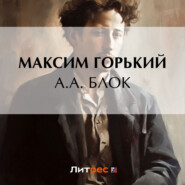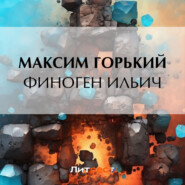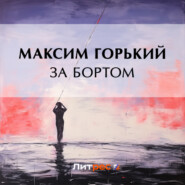По всем вопросам обращайтесь на: info@litportal.ru
(©) 2003-2025.
✖
Through Russia
Настройки чтения
Размер шрифта
Высота строк
Поля
"It is so. And whither are you going to take it?"
"We shall all of us die. I was going to take and bury it."
"But it is alive; and one does not bury things before they are dead."
Nilushka closed and opened his eyes once or twice.
"I should like to sing something," he remarked.
"Rather, do you SAY something."
He glanced at the ravine again – his pink nostrils quivering and dilating – then sighed as though he was weary, and in all unconsciousness muttered a foul expression. As he did so I noticed that on the portion of his neck below his right ear there was a large birthmark, and that, covered with golden down like velvet, and resembling in shape a bee, it seemed to be endowed with a similitude of life, through the faint beating of a vein in its vicinity.
Presently the ladybird raised her upper wings as though she were preparing for flight; whereupon Nilushka sought with a finger to detain her, and, in so doing, let fall the leaf, and enabled the insect to detach itself and fly away at a low level. Upon that, bending forward with arms outstretched, the idiot went softly in pursuit, much as though he himself were launching his body into leisurely flight, but, when ten paces away, stopped, raised his face to heaven, and, with arms pendent before him, and the palms of his hands turned outwards as though resting on something which I could not see, remained fixed and motionless.
From the ravine there were tending upwards towards the sunlight some green sprigs of willow, with dull yellow flowers and a clump of grey wormwood, while the damp cracks which seamed the clay of the ravine were lined with round leaves of the "mother-stepmother plant," and round about us little birds were hovering, and from both the bushes and the bed of the ravine there was ascending the moist smell of decay. Yet over our heads the sky was clear, as the sun, now sole occupant of the heavens, declined slowly in the direction of the dark marshes across the river; only above the roofs of Zhitnaia Street could there be seen fluttering about in alarm a flock of snow-white pigeons, while waving below them was the black besom which had, as it were, swept them into the air, and from afar one could hear the sound of an angry murmur, the mournful, mysterious murmur of the town.
Whiningly, like an old man, a child of the suburb was raising its voice in lamentation; and as I listened to the sound, it put me in mind of a clerk reading Vespers amid the desolation of an empty church. Presently a brown dog passed us with shaggy head despondently pendent, and eyes as beautiful as those of a drunken woman.
And, to complete the picture, there was standing – outlined against the nearest shanty of the suburb, a shanty which lay at the extreme edge of the ravine-there was standing, face to the sun, and back to the town, as though preparing for flight, the straight, slender form of the boy who, while alien to all, caressed all with the eternally incomprehensible smile of his angel-like eyes. Yes, that golden birthmark so like a bee I can see to this day!
Two weeks later, on a Sunday at mid-day, Nilushka passed into the other world. That day, after returning home from late Mass, and handing to his mother a couple of wafers which had been given him as a mark of charity, the lad said:
"Mother, please lay out my bed on the chest, for I think that I am going to lie down for the last time."
Yet the words in no way surprised Felitzata, for he had often before remarked, before retiring to rest:
"Some day we shall all of us have to die."
At the same time, whereas, on previous occasions, Nilushka had never gone to sleep without first of all singing to himself his little song, and then chanting the eternal, universal "Lord, have mercy upon us!" he, on this occasion, merely folded his hands upon his breast, closed his eyes, and relapsed into slumber.
That day Felitzata had dinner, and then departed on business of her own; and when she returned in the evening, she was astonished to find that her son was still asleep. Next, on looking closer at him, she perceived that he was dead.
"I looked," she related plaintively to some of the suburban residents who came running to her cot, "and perceived his little feet to be blue; and since it was only just before Mass that I had washed his hands with soap, I remarked the more readily that his feet were become less white than his hands. And when I felt one of those hands, I found that it had stiffened."
On Felitzata's face, as she recounted this, there was manifest a nervous expression. Likewise, her features were a trifle flushed. Yet gleaming also through the tears in her languorous eyes there was a sense of relief – one might almost have said a sense of joy.
"Next," continued she, "I looked closer still, and then fell on my knees before the body, sobbing: 'Oh my darling, whither art thou fled? Oh God, wherefore hast Thou taken him from me?'"
Here Felitzata inclined her head upon her left shoulder contracted her brows over her mischievous eyes, clasped her hands to her breast, and fell into the lament:
Oh, gone is my dove, my radiant moon!
O star of mine eyes, thou hast set too soon!
In darksome depths thy light lies drown'd,
And time must yet complete its round,
And the trump of the Second Advent sound,
Ere ever my —
"Here, you! Hold your tongue!" grunted Vologonov irritably.
For myself, I had, that day, been walking in the forest, until, as I returned, I was brought up short before the windows of Felitzata's cot by the fact that some of the erstwhile turbulent denizens of the suburb were whispering softly together as, with an absence of all noise, they took turns to raise themselves on tiptoe, and, craning their necks, to peer into one of the black window-spaces. Yes, like bees on the step of a hive did they look, and on the great majority of faces, and in the great majority of eyes, there was quivering an air of tense, nervous expectancy.
Only Vologonov was nudging Felitzata, and saying to her in a loud, authoritative tone:
"Very ready are you to weep, but I should like first to hear the exact circumstances of the lad's death."
Thus invited, the woman wiped her eyes with the sleeve of her bodice, licked her lips, heaved a prolonged sigh, and fell to regarding Antipa's red, hardbitten face with the cheerful, unabashed glance of a person who is under the influence of liquor. From under her white head-band there had fallen over her temples and her right cheek a few wisps of golden hair; and indeed, as she drew herself up, and tossed her head and bosom, and smoothed out and stretched the creases in her bodice, she looked less than her years. Everyone now fell to eyeing her in an attentive silence, though not, it would seem, without a touch of envy.
Abruptly, sternly, the old man inquired:
"Did the lad ever complain of ill-health?"
"No, never," Felitzata replied. "Never once did he speak of it – never once."
"And he had not been beaten?"
"Oh, how can you ask me such a thing, and especially seeing that, that – ?"
"I did not say beaten by YOU."
"Well, I cannot answer for anyone else, but at least had he no mark on his body, seeing that when I lifted the smock I could find nothing save for scratches on legs and back."
Her tone now had in it a new ring, a ring of increased assurance, and when she had finished she closed her bright eyes languidly before heaving a soft, as it were, voluptuous, and, withal, very audible sigh.
Someone here murmured:
"She DID use to beat him."
"What?"
"At all events she used to lose her temper with him."
This led to the putting of a further dozen or so of leading questions; whereafter Antipa, for a while, preserved a suggestive silence, and the crowd too remained silent, as though it had suddenly been lulled to slumber. Only at long last, and with a clearing of his throat, did Antipa say:
"Friends, we must suppose that God, of His infinite Mercy, has vouchsafed to us here a special visitation, in that, as all of us have perceived, a lad bereft of wit, the same radiant lad whom all of us have known, has here abided in the closest of communion with the Blessed Dispenser of life on earth."
Then I moved away, for upon my heart there was pressing a burden of unendurable sorrow, and I was yearning, oh, so terribly, to see Nilushka once more.
The back portion of Felitzata's cot stood a little sunken into the ground, so that the front portion had its cold window panes and raised sash tilted a trifle towards the remote heavens. I bent my head, and entered by the open door. Near the threshold Nilushka was lying on a narrow chest against the wall. The folds of a dark-red pillow of fustian under the head set off to perfection the pale blue tint of his round, innocent face under its corona of golden curls; and though the eyes were closed, and the lips pressed tightly together, he still seemed to be smiling in his old quiet, but joyous, way. In general, the tall, thin figure on the mattress of dark felt, with its bare legs, and its slender hands and wrists folded across the breast, reminded me less of an angel than of a certain image of the Holy Child with which a blackened old ikon had rendered me familiar from my boyhood upwards.
Everything amid the purple gloom was still. Even the flies were forbearing to buzz. Only from the street was there grating through the shaded window the strong, roguish voice of Felitzata as it traced the strange, lugubrious word-pattern:
With my bosom pressed to the warm, grey earth,
To thee, grey earth, to thee, Oh my mother of old,
I beseech thee, I who am a mother like thee,
And a mother in pain, to enfold in thy arms
This my son, this my dead son, this my ruby,
This my drop of my heart's blood, this my —
"We shall all of us die. I was going to take and bury it."
"But it is alive; and one does not bury things before they are dead."
Nilushka closed and opened his eyes once or twice.
"I should like to sing something," he remarked.
"Rather, do you SAY something."
He glanced at the ravine again – his pink nostrils quivering and dilating – then sighed as though he was weary, and in all unconsciousness muttered a foul expression. As he did so I noticed that on the portion of his neck below his right ear there was a large birthmark, and that, covered with golden down like velvet, and resembling in shape a bee, it seemed to be endowed with a similitude of life, through the faint beating of a vein in its vicinity.
Presently the ladybird raised her upper wings as though she were preparing for flight; whereupon Nilushka sought with a finger to detain her, and, in so doing, let fall the leaf, and enabled the insect to detach itself and fly away at a low level. Upon that, bending forward with arms outstretched, the idiot went softly in pursuit, much as though he himself were launching his body into leisurely flight, but, when ten paces away, stopped, raised his face to heaven, and, with arms pendent before him, and the palms of his hands turned outwards as though resting on something which I could not see, remained fixed and motionless.
From the ravine there were tending upwards towards the sunlight some green sprigs of willow, with dull yellow flowers and a clump of grey wormwood, while the damp cracks which seamed the clay of the ravine were lined with round leaves of the "mother-stepmother plant," and round about us little birds were hovering, and from both the bushes and the bed of the ravine there was ascending the moist smell of decay. Yet over our heads the sky was clear, as the sun, now sole occupant of the heavens, declined slowly in the direction of the dark marshes across the river; only above the roofs of Zhitnaia Street could there be seen fluttering about in alarm a flock of snow-white pigeons, while waving below them was the black besom which had, as it were, swept them into the air, and from afar one could hear the sound of an angry murmur, the mournful, mysterious murmur of the town.
Whiningly, like an old man, a child of the suburb was raising its voice in lamentation; and as I listened to the sound, it put me in mind of a clerk reading Vespers amid the desolation of an empty church. Presently a brown dog passed us with shaggy head despondently pendent, and eyes as beautiful as those of a drunken woman.
And, to complete the picture, there was standing – outlined against the nearest shanty of the suburb, a shanty which lay at the extreme edge of the ravine-there was standing, face to the sun, and back to the town, as though preparing for flight, the straight, slender form of the boy who, while alien to all, caressed all with the eternally incomprehensible smile of his angel-like eyes. Yes, that golden birthmark so like a bee I can see to this day!
Two weeks later, on a Sunday at mid-day, Nilushka passed into the other world. That day, after returning home from late Mass, and handing to his mother a couple of wafers which had been given him as a mark of charity, the lad said:
"Mother, please lay out my bed on the chest, for I think that I am going to lie down for the last time."
Yet the words in no way surprised Felitzata, for he had often before remarked, before retiring to rest:
"Some day we shall all of us have to die."
At the same time, whereas, on previous occasions, Nilushka had never gone to sleep without first of all singing to himself his little song, and then chanting the eternal, universal "Lord, have mercy upon us!" he, on this occasion, merely folded his hands upon his breast, closed his eyes, and relapsed into slumber.
That day Felitzata had dinner, and then departed on business of her own; and when she returned in the evening, she was astonished to find that her son was still asleep. Next, on looking closer at him, she perceived that he was dead.
"I looked," she related plaintively to some of the suburban residents who came running to her cot, "and perceived his little feet to be blue; and since it was only just before Mass that I had washed his hands with soap, I remarked the more readily that his feet were become less white than his hands. And when I felt one of those hands, I found that it had stiffened."
On Felitzata's face, as she recounted this, there was manifest a nervous expression. Likewise, her features were a trifle flushed. Yet gleaming also through the tears in her languorous eyes there was a sense of relief – one might almost have said a sense of joy.
"Next," continued she, "I looked closer still, and then fell on my knees before the body, sobbing: 'Oh my darling, whither art thou fled? Oh God, wherefore hast Thou taken him from me?'"
Here Felitzata inclined her head upon her left shoulder contracted her brows over her mischievous eyes, clasped her hands to her breast, and fell into the lament:
Oh, gone is my dove, my radiant moon!
O star of mine eyes, thou hast set too soon!
In darksome depths thy light lies drown'd,
And time must yet complete its round,
And the trump of the Second Advent sound,
Ere ever my —
"Here, you! Hold your tongue!" grunted Vologonov irritably.
For myself, I had, that day, been walking in the forest, until, as I returned, I was brought up short before the windows of Felitzata's cot by the fact that some of the erstwhile turbulent denizens of the suburb were whispering softly together as, with an absence of all noise, they took turns to raise themselves on tiptoe, and, craning their necks, to peer into one of the black window-spaces. Yes, like bees on the step of a hive did they look, and on the great majority of faces, and in the great majority of eyes, there was quivering an air of tense, nervous expectancy.
Only Vologonov was nudging Felitzata, and saying to her in a loud, authoritative tone:
"Very ready are you to weep, but I should like first to hear the exact circumstances of the lad's death."
Thus invited, the woman wiped her eyes with the sleeve of her bodice, licked her lips, heaved a prolonged sigh, and fell to regarding Antipa's red, hardbitten face with the cheerful, unabashed glance of a person who is under the influence of liquor. From under her white head-band there had fallen over her temples and her right cheek a few wisps of golden hair; and indeed, as she drew herself up, and tossed her head and bosom, and smoothed out and stretched the creases in her bodice, she looked less than her years. Everyone now fell to eyeing her in an attentive silence, though not, it would seem, without a touch of envy.
Abruptly, sternly, the old man inquired:
"Did the lad ever complain of ill-health?"
"No, never," Felitzata replied. "Never once did he speak of it – never once."
"And he had not been beaten?"
"Oh, how can you ask me such a thing, and especially seeing that, that – ?"
"I did not say beaten by YOU."
"Well, I cannot answer for anyone else, but at least had he no mark on his body, seeing that when I lifted the smock I could find nothing save for scratches on legs and back."
Her tone now had in it a new ring, a ring of increased assurance, and when she had finished she closed her bright eyes languidly before heaving a soft, as it were, voluptuous, and, withal, very audible sigh.
Someone here murmured:
"She DID use to beat him."
"What?"
"At all events she used to lose her temper with him."
This led to the putting of a further dozen or so of leading questions; whereafter Antipa, for a while, preserved a suggestive silence, and the crowd too remained silent, as though it had suddenly been lulled to slumber. Only at long last, and with a clearing of his throat, did Antipa say:
"Friends, we must suppose that God, of His infinite Mercy, has vouchsafed to us here a special visitation, in that, as all of us have perceived, a lad bereft of wit, the same radiant lad whom all of us have known, has here abided in the closest of communion with the Blessed Dispenser of life on earth."
Then I moved away, for upon my heart there was pressing a burden of unendurable sorrow, and I was yearning, oh, so terribly, to see Nilushka once more.
The back portion of Felitzata's cot stood a little sunken into the ground, so that the front portion had its cold window panes and raised sash tilted a trifle towards the remote heavens. I bent my head, and entered by the open door. Near the threshold Nilushka was lying on a narrow chest against the wall. The folds of a dark-red pillow of fustian under the head set off to perfection the pale blue tint of his round, innocent face under its corona of golden curls; and though the eyes were closed, and the lips pressed tightly together, he still seemed to be smiling in his old quiet, but joyous, way. In general, the tall, thin figure on the mattress of dark felt, with its bare legs, and its slender hands and wrists folded across the breast, reminded me less of an angel than of a certain image of the Holy Child with which a blackened old ikon had rendered me familiar from my boyhood upwards.
Everything amid the purple gloom was still. Even the flies were forbearing to buzz. Only from the street was there grating through the shaded window the strong, roguish voice of Felitzata as it traced the strange, lugubrious word-pattern:
With my bosom pressed to the warm, grey earth,
To thee, grey earth, to thee, Oh my mother of old,
I beseech thee, I who am a mother like thee,
And a mother in pain, to enfold in thy arms
This my son, this my dead son, this my ruby,
This my drop of my heart's blood, this my —

















